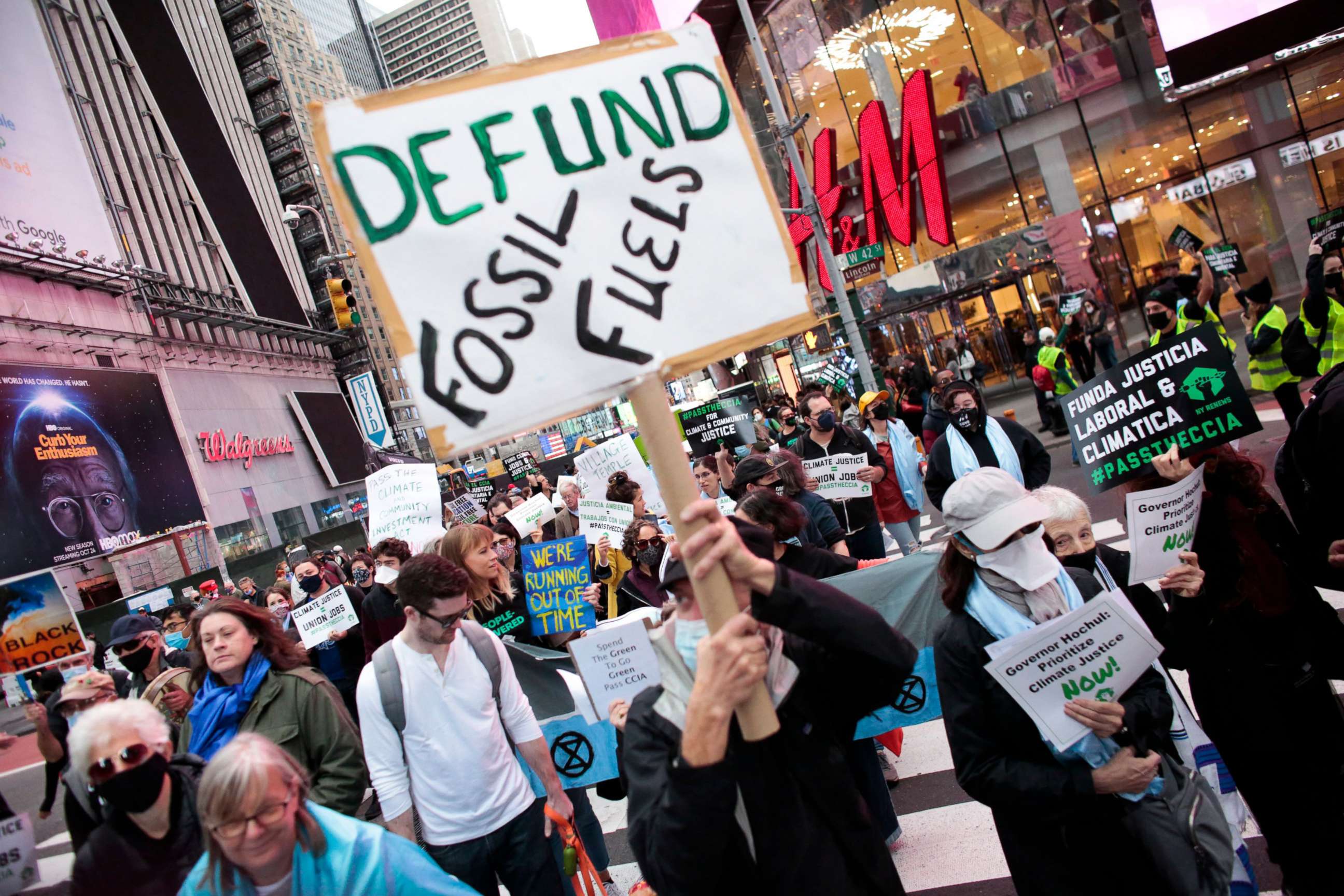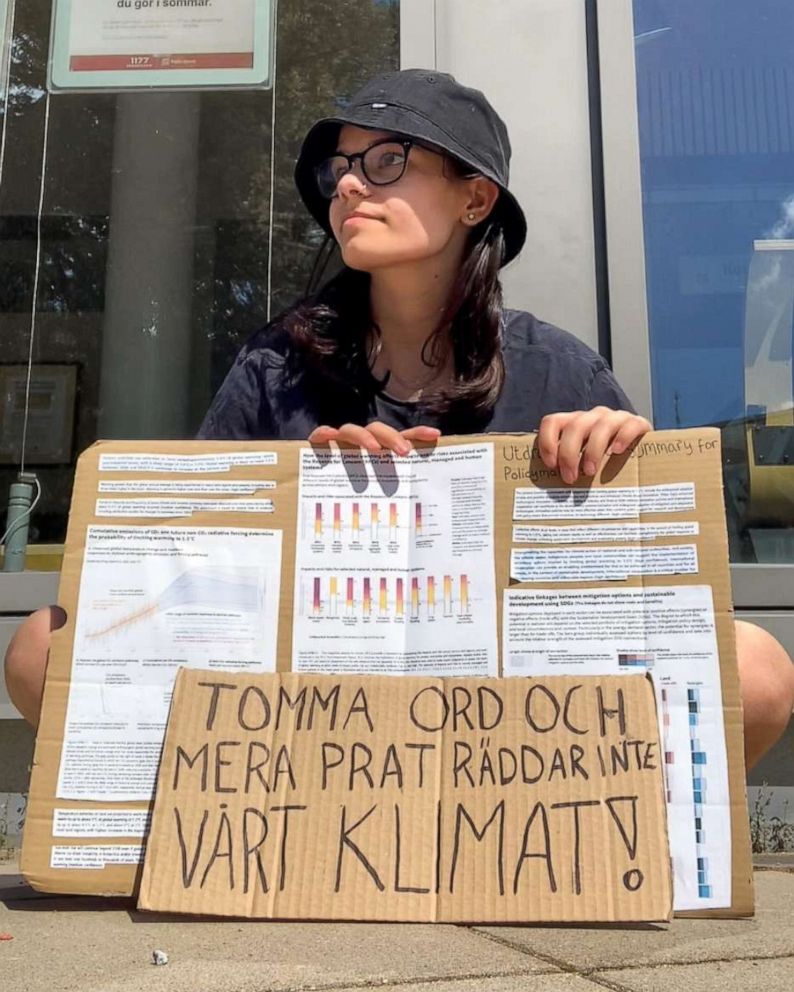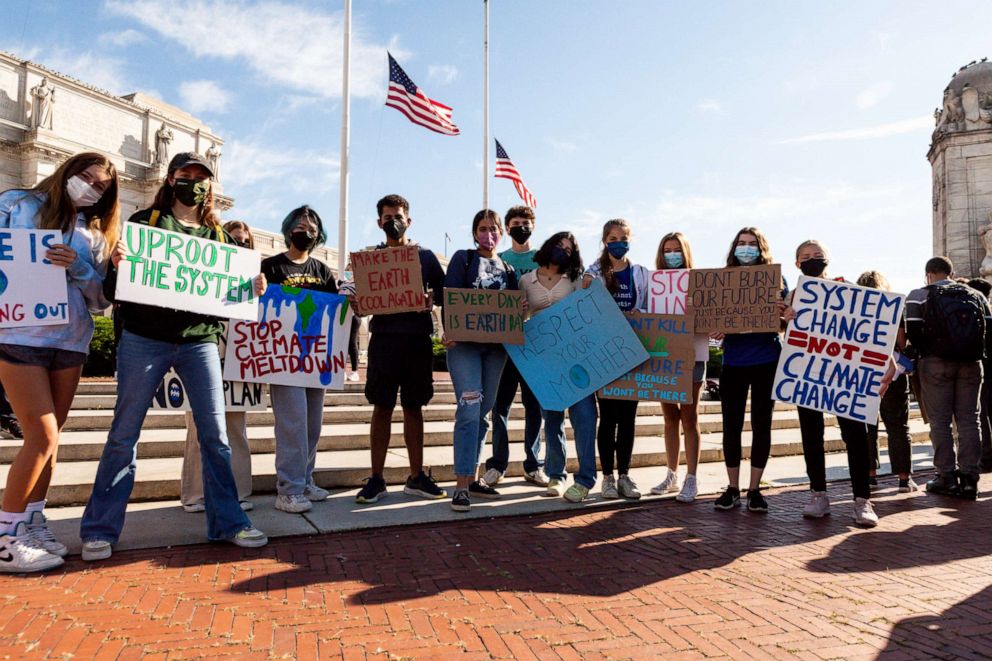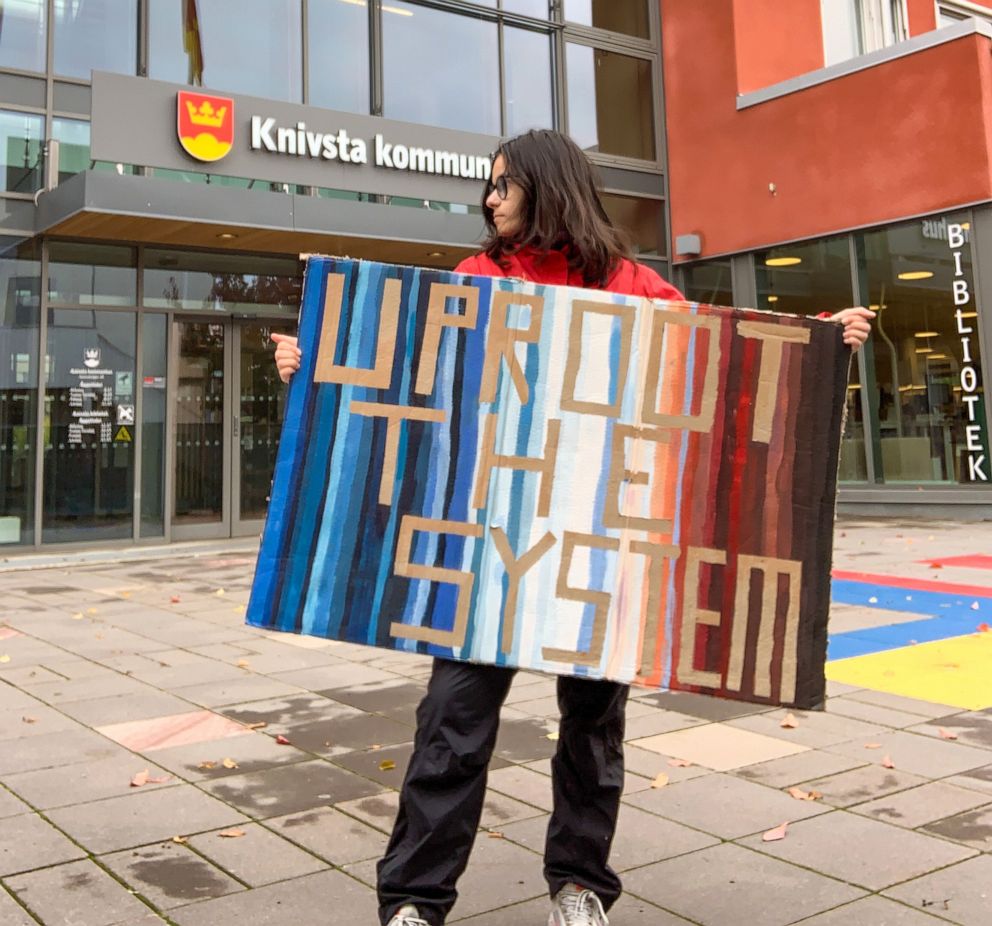Climate activists with disabilities fight for inclusion
Climate activists with disabilities decry a lack of representation and burnout.
Despite 15% of the world's population living with some form of a disability, research into the effects of climate change on the disabled community is still emerging.
Natural disasters resulting from climate change, like heatwaves and wildfires, disproportionately affect people with disabilities, according to advocates and activists. The harmful effects of climate change faced by disabled people are diverse and include -- but aren't limited to -- reduced mobility, inability to regulate body temperature and respiratory problems.
Moreover, those with disabilities face further barriers in becoming advocates for environmental action and voicing their concerns, several experts who spoke with ABC News said.
While advocates claim the digital age has given climate change activists with disabilities more of a voice, they say the pandemic, which has forced society to live life even more online, has created more opportunities for those with disabilities; not just with work-from-home, but also to participate in activism.
Now, climate change activists with disabilities are increasingly demanding their place at the forefront of the climate change fight.
Yet, there remains an overall lack of visibility and literacy about the experiences of individuals with disabilities, Gregor Wolbring, a professor at the University of Calgary’s Cumming School of Medicine and an ability and disability studies scholar, told ABC News.
"You have to find a way that people are exposed more to disabled people in general," Wolbring said.

In a recently published study looking at more than 5,500 abstracts of the academic climate change and environmental action literature, Wolbring and his colleague Chiara Salvatore found that none of these studies focused on youth with disabilities as environmental activists, and none dealt with the impact of environmental activism on youth with disabilities.
The 14 studies they identified that did address disability and environmental action did so in the capacity of impairments due to environmental issues such as toxins.
Recently, there were also claims that COP26, considered the largest and most significant climate change conference, was inaccessible to many with disabilities, even though COP President Alok Sharma in May 2021, promised the event would be the most inclusive COP ever.
Reports from the first week highlighted the inaccessibility of the conference venue as Israeli energy minister Karine Elharrar-Hartstein, a wheelchair user, was unable to enter.
The minister was eventually able to enter the venue after her concerns reached Israel and UK Prime Ministers Naftali Bennett and Boris Johnson, who issued her a public apology.
COP26 organizers also addressed the incident in a tweet and said, "#COP26 must be inclusive and accessible to all and the venue is designed to facilitate that."
"I think people are definitely horrified at the lack of accessibility, but because it was solved for the Israeli minister, they don't think it's a problem anymore," 17-year-old climate activist Scarlett Westbrook, who uses crutches, told ABC News.
From reports of having to walk over 10 minutes to enter the venue to the misuse of accessible elevators by camera crews, Westbrook said every part of the conference was "as inaccessible as it possibly could be."
Some of the activists said that simply attending COP26 or other such congregations is a non-option due to their disability and financial limitations.

Elleonora Ali Uddman, a 17-year-old Swedish student and disability rights and climate activist with Ehlers Danlos Syndrome, a connective tissue disorder, said she was among those who couldn't attend.
Uddman, who began striking in support of climate change action in 2019, said, however, that she has noticed that environmental activism has started to become more inclusive since the COVID-19 pandemic.
"Things became a lot more easier online. I didn't have to worry about traveling, I didn't have to worry about whether or not I would be in pain because I would be in the comfort of my own home where I had all of my stuff," Uddman told ABC News.
She also said that the growing normalization of tone indicators has made online communication easier. Tone indicators are symbols that are often used online as shorthand after sentences to better communicate the intention of non-verbal messages, such as conveying sarcasm.
Wolbring, a wheelchair user, said he was "privileged" as the pandemic-induced push to remote operations has worked in his favor and reduced his travel to academic conferences, which he found "aggravating" and a "waste of energy."
Twenty-year-old Benny Frohna from Los Angeles, who is neurodivergent, spoke about feeling burned-out and unheard in the climate action space.
"I do what I do. And then I sort of look across the aisle, and I see able-bodied and able-minded, neurotypical people getting much more out of what we both do, what we share than I ever could," Frohna told ABC News.

Frohna's activism now takes the form of writing; more “powerful” and “healthier” than protesting in-person, Frohna said.
"That is sort of the way that I am an advocate these days. And I don't know, like, how accessible it is. But I do know that that is more accessible for me than being out in a crowd of people on a 90-degree day," Frohna said.
How to bring about change
In order to make space for disabled climate activists who face the brunt of climate change's negative consequences, Wolbring said that change must begin with improving literacy about the experiences of disabled people.
Wolbring said that most people, including his own students, don't see disabled people in their everyday lives.
“You do not know what you don’t know, right?" he said.
The activists who spoke to ABC News highlighted the significance of representation and being provided a platform to voice their concerns.

"You don't really hear about disabilities and the climate crisis being connected at all," Uddman told ABC News. "We are usually not even included in statistics as disabled people."
Mya Pol, a 20-year-old content creator and student from Amherst, Massachusetts, runs a TikTok account where she advocates for disability rights and uses her platform to educate people about environmentalism.
"With awareness and understanding come inclusion and acceptance," Pol told ABC News. "You can't make change, you can't make improvements if you don't know that there's something to work on."




